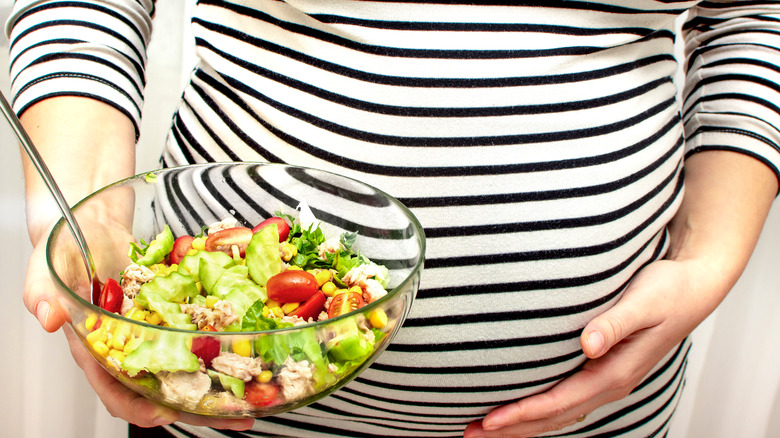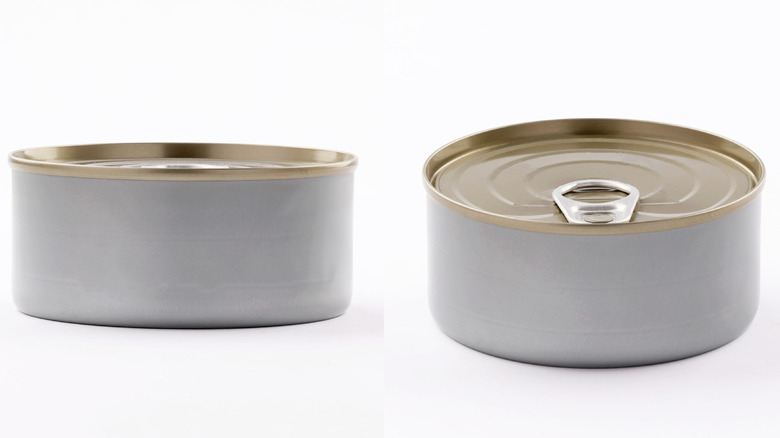How Bad Is It To Eat Tuna While Pregnant?
Eating fish during pregnancy can be a healthy option because of its beneficial omega-3 fatty acids, vitamins, protein, and minerals. But tuna is one marine species that many moms-to-be are told to avoid. Why? It's all about the mercury levels in tuna, which can be higher especially in canned tuna (via American Pregnancy Association).
Mercury can be harmful to a developing baby's brain, but experts say there isn't any evidence that eating a couple servings per week of seafood with low levels of mercury during pregnancy will cause problems (via Mayo Clinic). Studies have actually found that the nutritional benefits of fish can be helpful for growth and development during pregnancy and childhood, according to the U.S. Food and Drug Administration.
There are some options that don't necessarily require you to fully eliminate tuna from your diet. The FDA says it is okay for pregnant or breastfeeding women to eat two to three 4-ounce servings of canned light tuna per week.
How you can safely eat tuna during pregnancy
Pregnant or breastfeeding women can also have one 4-ounce serving of either albacore, white, or yellowfin tuna — canned, fresh, or frozen — once a week. However, if you consume one of these tuna varieties, it should be the only fish you eat that week. You should avoid bigeye tuna, as it has the highest levels of mercury (via FDA).
If canned tuna is your go-to, there is also an option that boasts a "low mercury" rating by Consumer Reports. Safe Catch Elite tuna products are geared toward children and pregnant women, as they test the mercury level of every fish used to ensure low content, according to American Pregnancy Association.
No matter which fish you end up eating, be sure to follow food safety guidelines. Make sure your seafood is cooked properly, avoid raw shellfish, and pay attention to any local fish advisories when purchasing local fish, according to the Mayo Clinic. As always, it is best to consult with your doctor if you have any questions about nutrition and pregnancy.


